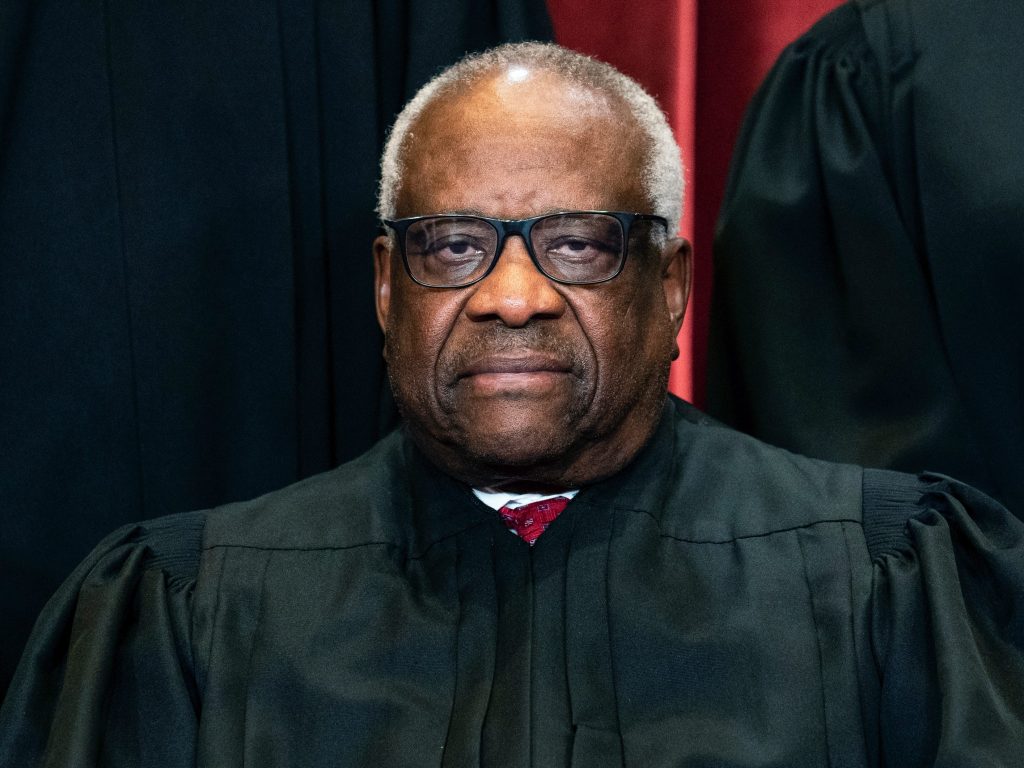- Justice Thomas wants the Supreme Court to revisit decades of libel protections.
- Changing the standard for defamation could make it easier for public figures to sue media organizations.
- His dissenting opinion came as the Court decided not to take on a defamation case.
Justice Clarence Thomas urged the Supreme Court on Monday to revisit decades of libel protections set by the landmark New York Times Co. v. Sullivan case — arguing the court should reconsider the standards that make it harder for public figures to sue media organizations.
Thomas dissented from the Court's decision to not take on a defamation case between a Christian media group formerly known as Coral Ridge Ministries Media — now D. James Kennedy Ministries — and the Southern Poverty Law Center, which previously designated Coral Ridge as an "anti-LGBT hate group."
"I would grant certiorari in this case to revisit the 'actual malice' standard," Thomas wrote in his dissenting opinion. "This case is one of many showing how New York Times and its progeny have allowed media organizations and interest groups 'to cast false aspersions on public figures with near impunity.' "
Thomas said Coral Ridge's classification lumped it with groups like the "Ku Klux Klan and Neo-Nazis" and placed the group on an "interactive, online 'Hate Map.'"
Coral Ridge sued the SPLC in 2017, alleging that it was defamed by the SPLC's designation because Amazon wouldn't let it participate in a donation program. The suit was dismissed, and a federal appeals court later sided with the dismissal in 2021 and said Coral Ridge was unable to allege that SPLC acted with "actual malice."
Under the precedent set by the 1964 landmark New York Times Co. v. Sullivan, public figures suing for defamation must prove that the defendant acted with "actual malice" and made a reckless decision.
Coral Ridge considered itself to be a "public figure," Thomas said, which forces it to prove multiple elements in order to counter SPLC's argument that it designated the group with First Amendment protections.
If the standard for defamation was changed, it could allow public figures to more easily sue news and media organizations over negative coverage.
